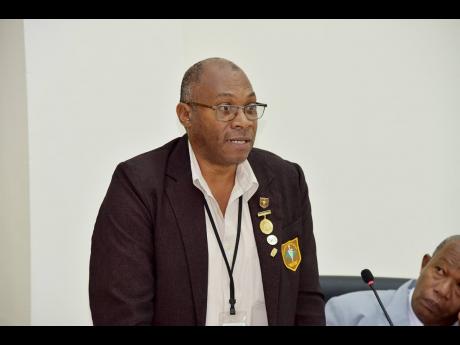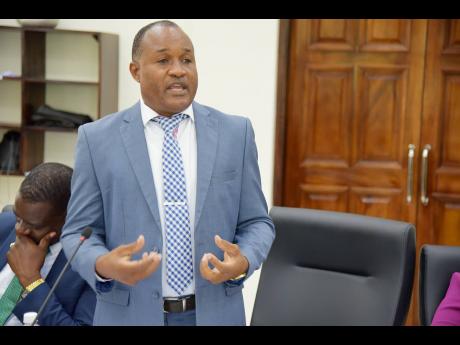Labelling of authorised water trucks rejected
Westmoreland Health Services convinced licensing enough to prevent distribution of untreated water
WESTERN BUREAU:
THE WESTMORELAND Public Health Services has shot down a proposal to have private water trucks labelled, as part of efforts to clamp down on trucks allegedly distributing untreated water.
At present, there are 35 certified truckers who have been given a clean bill of health to transport and sell potable water in the parish, and they are provided with a certificate as proof by the parish’s health department.
“After the certification of the trucks, I think one of the easiest things in terms of identification would have been to have a mark on these trucks from your department; whether you want to write it or print it, something must be on those trucks,” Ian Myles, the Jamaica Labour Party councillor for the Little London division, stated in a proposal to the parish’s health department.
Speaking at Thursday’s general meeting of the Westmoreland Municipal Corporation, Myles said placing labels on the authorised trucks would give residents a greater level of confidence that they are buying treated water from reputable individuals.
“We need to take it a step further, rather than just give them a piece of paper and say put it in your truck. As a matter of fact, a telephone number should be on it from the health department where they can call to verify,” the Little London councillor argued.
He expressed concern that residents across the parish could be exposed to water-borne diseases in light of allegations that some truckers are selling untreated water.
“I see a problem arising from this that is happening. Everybody is buying water because the wells are dry,” Myles said. “And, if they are catching water from untreated sources, that’s a serious concern because we’re now going to be exposed to associated water-borne diseases,” he said.
Chief Public Health Inspector for Westmoreland, Steve Morris, does not believe that the health department should include any additional measures at this time, pointing out that the public health certificate issued by the agency is sufficient.
“We have instituted, since last year, a programme where all truckers must be licensed by the health department, meaning that they must have a food handler’s permit as well as a sterilisation certificate,” Morris said.
He said truckers are being provided with a public health certificate and that training is ongoing for new and existing truckers as part of efforts to ensure the water being transported to residents and commercial entities is safe.
“Once they get those certificates, then they can then get a public health certificate that they are to display in their trucks. It has the licence plate number of the truck,” Morris said, continuing his pushback against having the trucks labelled.
The entire Westmoreland is affected by a water crisis, and residents and hoteliers have been forced to find extra sources of funding to purchase water.
Hoteliers operating medium to large properties reported that the gravity of the crisis has forced them to be spending between $2 million and $5 million on a weekly basis to truck water.
Jamaicans struggling with water crisis were told earlier this week that the country was in the throes of a meteorological, hydrological and agricultural drought, with the western parishes of Westmoreland and Hanover hardest hit.


